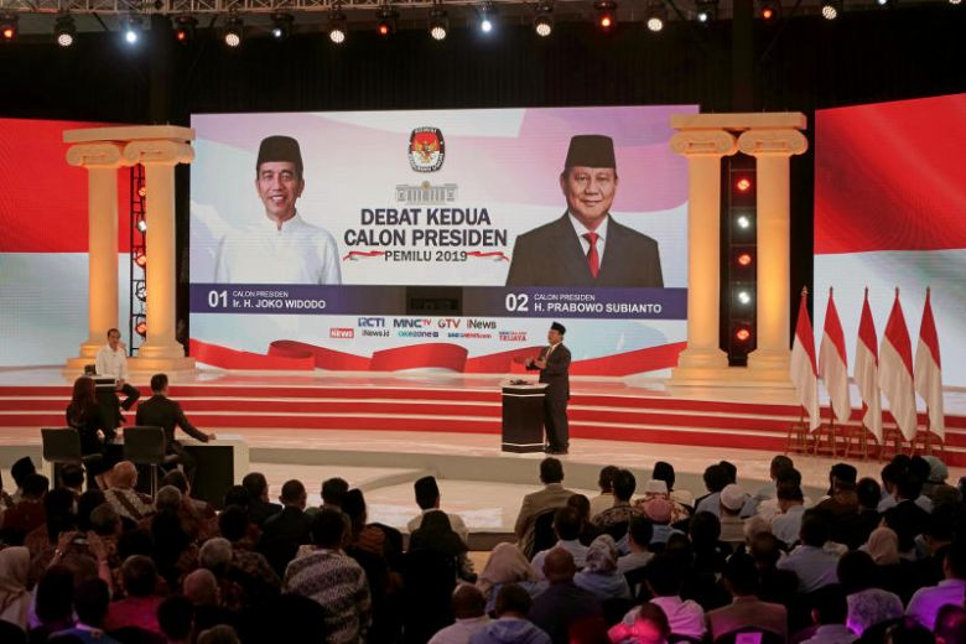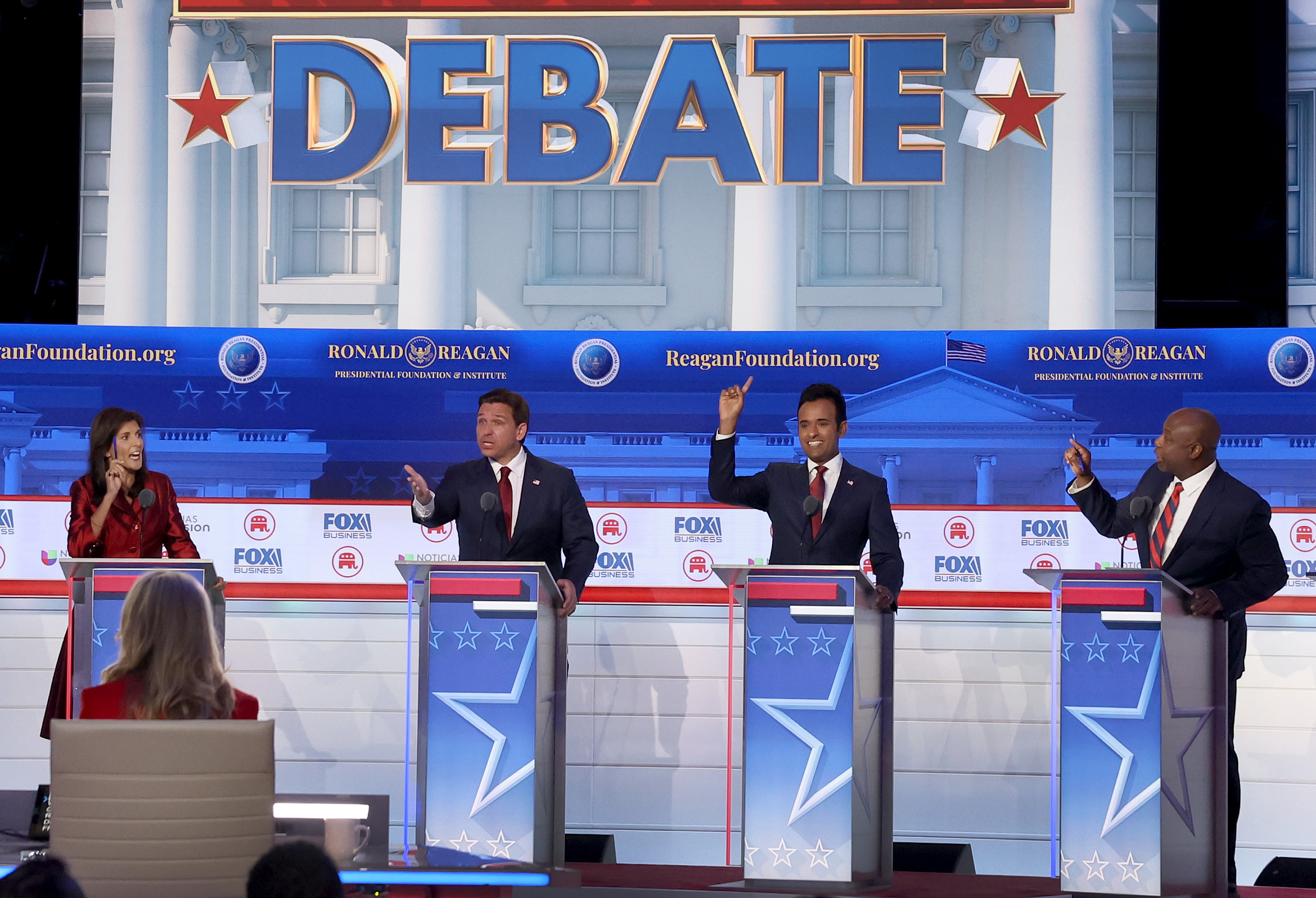Key Issues and Talking Points

The September presidential debate will likely focus on issues that are top-of-mind for voters and have significant implications for the upcoming election. These issues will be shaped by current events, public opinion polls, and the candidates’ own campaign strategies.
Economy and Inflation, September presidential debate
The state of the economy and the ongoing issue of inflation will undoubtedly be central to the debate. Voters are concerned about rising prices for essential goods and services, and they are looking for solutions from the candidates.
The candidates will likely present contrasting economic plans, with each emphasizing their approach to tackling inflation and stimulating economic growth. For instance, one candidate might propose tax cuts for businesses and individuals, while the other might advocate for increased government spending on infrastructure and social programs.
“The economy is the number one issue for voters, and inflation is a major concern. The candidates will need to offer concrete solutions to address these issues.”
Healthcare
Healthcare remains a critical issue in American politics, and it is likely to be a focal point of the debate. Voters are concerned about the affordability and accessibility of healthcare, particularly in light of rising healthcare costs and the ongoing debate over healthcare reform.
The candidates will likely present their visions for healthcare reform, with each focusing on different priorities. One candidate might emphasize expanding access to affordable healthcare, while the other might prioritize lowering healthcare costs.
“Healthcare is a major issue for voters, and the candidates will need to offer solutions to make healthcare more affordable and accessible.”
Media Coverage and Public Perception: September Presidential Debate

The September presidential debate will be a major media event, drawing significant attention from news outlets across the spectrum. The way the media covers the debate will significantly influence public perception of the candidates and the race itself. This coverage will be shaped by various factors, including the candidates’ performances, the debate’s format, and the media’s own biases and agendas.
Media Coverage of the Debate
The media will likely focus on several key aspects of the debate, including the candidates’ performance, the debate’s format, and the candidates’ positions on key issues.
- Candidate Performance: Media outlets will analyze the candidates’ body language, tone of voice, and overall demeanor. They will also assess the candidates’ responses to questions and their ability to articulate their positions effectively.
- Debate Format: The media will examine the structure and flow of the debate, noting any potential biases or advantages given to either candidate. This could include the selection of moderators, the order of questions, and the time allotted for responses.
- Key Issues: The media will focus on the candidates’ positions on key issues that are important to voters, such as the economy, healthcare, and foreign policy. They will analyze the candidates’ arguments and compare their stances to those of their opponents.
Influence of Media Coverage on Public Perception
Media coverage can significantly influence public perception of the candidates.
- Framing and Spin: Media outlets can frame the debate in a way that favors one candidate over the other. They can emphasize certain aspects of the debate while downplaying others, shaping the public’s understanding of the candidates’ positions and performance.
- Agenda Setting: The media can influence the public’s perception of what issues are important by choosing which issues to cover and how much attention to give them. For example, if a news outlet focuses heavily on the economy, voters may perceive it as a more important issue than other topics.
- Emotional Appeal: Media outlets can use emotionally charged language and imagery to sway public opinion. For example, they may use negative language to describe one candidate while portraying the other in a more positive light.
Social Media and Online Platforms
Social media and online platforms will play a significant role in shaping the conversation surrounding the debate.
- Real-Time Commentary: Social media will provide a platform for real-time commentary on the debate, allowing users to share their thoughts and opinions. This can create a sense of immediacy and engagement, but it can also lead to misinformation and the spread of biased content.
- Viral Content: Clips and moments from the debate are likely to go viral on social media, potentially influencing public perception and shaping the narrative around the candidates. This could include memorable quotes, heated exchanges, or even seemingly insignificant moments that gain traction online.
- Political Polarization: Social media algorithms can contribute to the creation of echo chambers, where users are only exposed to information that reinforces their existing beliefs. This can exacerbate political polarization and make it difficult for people to engage with opposing viewpoints.
The September presidential debate will likely be a heated affair, with each candidate vying for the spotlight. While the political landscape is intense, it’s worth remembering that even in the midst of serious discussions, a little bit of fun can be had.
Perhaps a nostalgic trip down memory lane with a McDonald’s collectors meal might be just the thing to lighten the mood. After all, the debate itself is a spectacle that’s sure to be talked about for weeks to come.
The September presidential debate will likely be a hotbed of discussion, with both candidates vying for the public’s attention. While the spotlight will be on the candidates themselves, it’s worth remembering the vital role of the First Lady, a role currently held by Gwen Walz in Minnesota.
Her support and advocacy behind the scenes often contribute significantly to the success of her husband’s political endeavors. This dynamic will undoubtedly play a part in the upcoming debate, as the candidates aim to connect with voters on a personal level.
